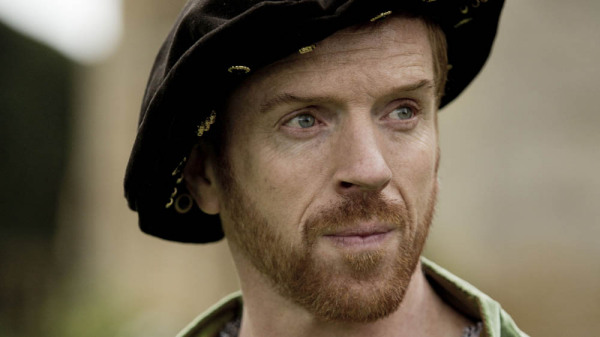It’s all over, bar the shouting. And the screaming. And the executions.
There will undoubtedly be a follow-up series, just as soon as Hilary Mantel gets around to finishing off her trilogy. But for now, we’ll just have to settle for six episodes of what has been the most compelling and hypnotic drama we’ve seen in some time.
Of course, much has been made (usually by us) of how much this is owed to Mark Rylance’s Cromwell: never has so much story and emotion been told by a seemingly impassive face. But it’s not Cromwell’s name on the series title. It’s not even Henry, who via Damien Lewis’ performance is two parts lethargic lothario to three parts slightly bemused toddler. No, it’s the name of an estate that, eagle eyed viewers will have noted, has actually barely featured onscreen.
Something else that has become increasingly obvious over the weeks is how much power lies with, well, those that appear to have none. In early publicity shots, it appeared to be Mark Gatiss’ Gardiner that would be the Machiavellian puppet master. Not a bit of it.
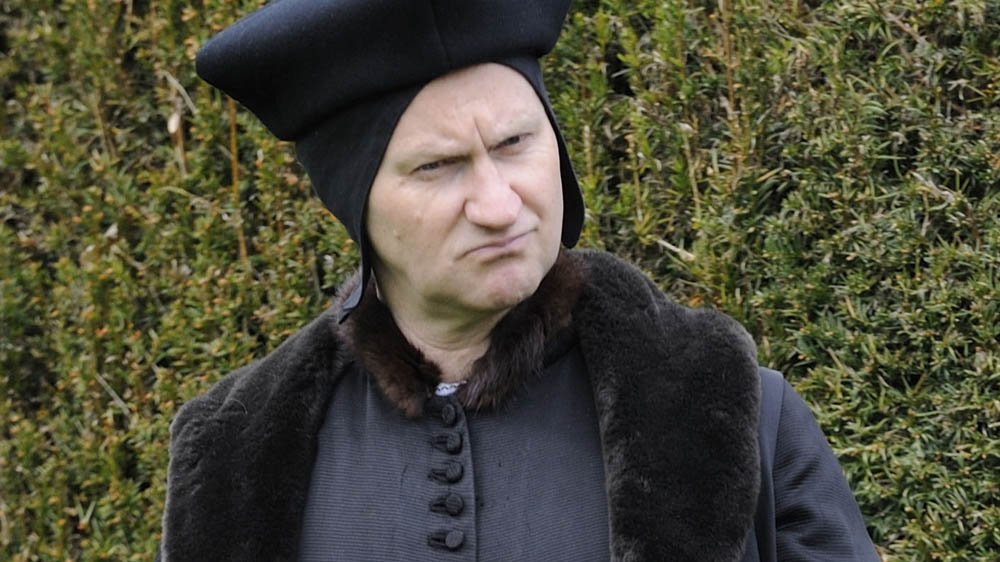
Jessica Raine’s Lady Rochford is simmering and bristling while Anne Boleyn descends into self-sabotage. It’s a supremely confident woman who can take a slap from the queen, and snarl back: ‘Do that again, and I will hit you back. You’re no queen. You’re a knight’s daughter and your time has come.’ Within moments, everyone is stalking out of the court. It’s not Lady Rochford, but the queen who is left pleading to departing backs.
It soon becomes clear to Anne that her end is nigh, although she tries to rail against it for as long as she can. You can sympathise with her bewildered rage: apart from when she resorts to bullying the commoners, she believes she has been dealt a bad card trick. She snarls at the man she claims (with some justification) to have created: ‘You think you’ve grown great. You think you no longer need me. But you’ve forgotten the most important thing. Those who are made, can be unmade.’
Cromwell considers this, not dropping his gaze from his queen. ‘I entirely agree’. He shifts his hand. A flash of the ring that Cardinal Wolsey bequeathed him. Anne has no more to say.
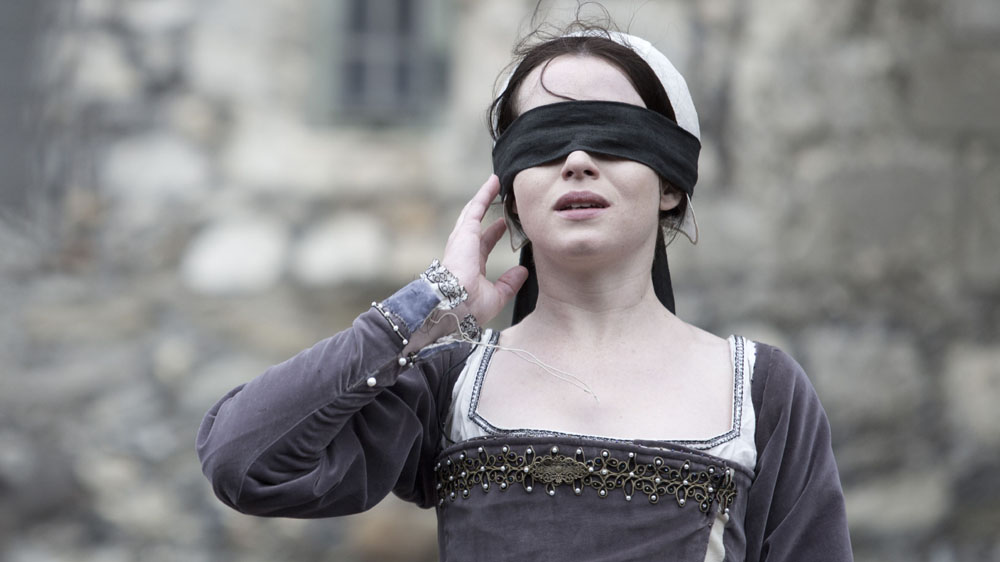
When Lady Rochford speaks to Cromwell later, he’s bemused: shouldn’t she have spent time comforting her distressed mistress? ‘No, I came looking for you.’ She then spends her time bending his ear with the most outrageous claims: that Anne has been sleeping around, that she practises her kisses (‘in the French fashion’) with her own brother, and that the court of the English throne risks being overrun by a litter of bastards that look nothing like Henry.
Cromwell drinks it all up, not seriously questioning any claims. But then, the king has already demanded an escape path from the queen. And Jane Boleyn has provided him with the scenic route.
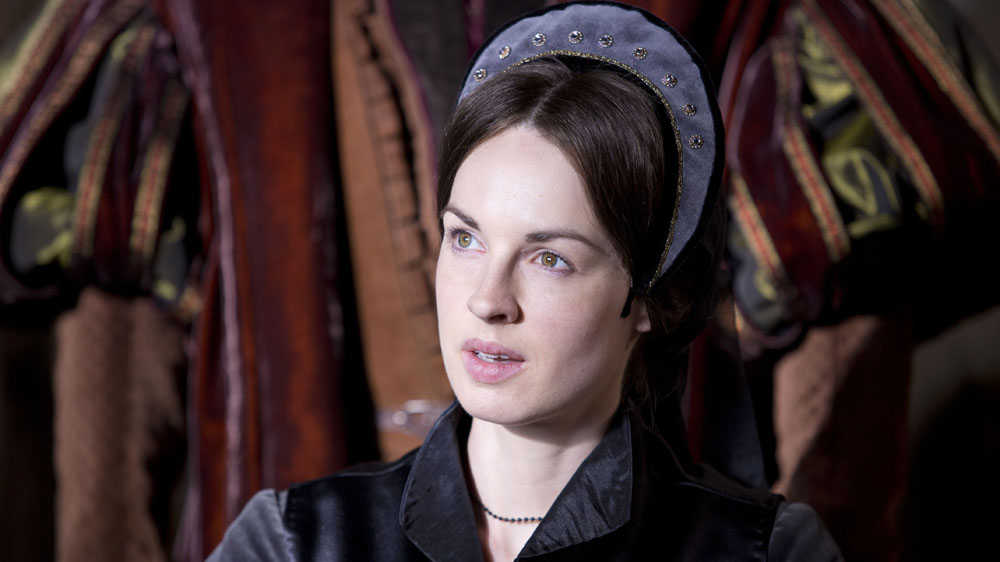
Mark, a pretty boy with an ego to match, is thrown into the gossipy mix and unable to resist the allure of a reputation that suggests he has had the attention and warm bed sheets of the queen. Very unfortunately for him, Cromwell decides to take him at his word, and demands that he gives up names of any other men who have shared the queen. When he claims that he doesn’t know what to say, Cromwell is unruffled.
‘We’ll write down what you say,’ he murmurs. ‘But we won’t necessarily write what we do.’ The threat couldn’t be more implicit if it was on the edge of a blade.
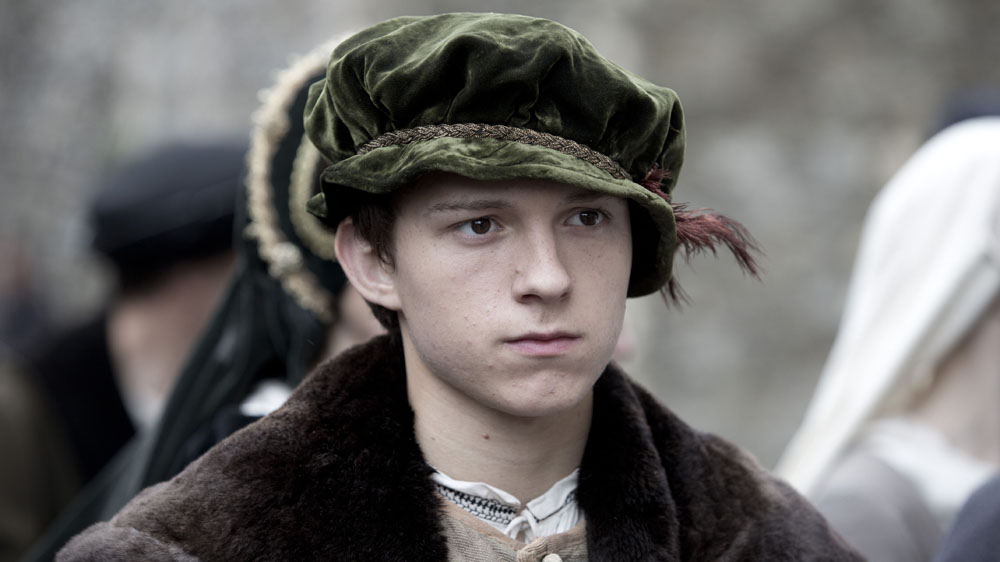
Cromwell serves his king, and makes it clear that this may get dirty. Anne can’t give Henry a son, he wants rid of her. She won’t go quietly; she has to be pushed.
‘I have to push her’, he explains. Anne is swiftly cut to the quick, attempting to be brave. She tells Cromwell ‘I only have a little neck. It will be the work of a moment.’ Cromwell, as ever, his duty with seeming kindness, says nothing. But then, he’s always been a good listener.
This period of British history will always be more myth than fact – there’s no way we can truly know if the sun shone brightly on the day of Anne’s marriage and clouded over on the morning of her death – but this series has richly compelling, making the Tudors as real and relatable as our neighbours: a sort of Reformation Street, if you like.
Wolf Hall is, for the moment, history, and we have at least a year to discover how things turn out. Yes, there’s textbooks and Wikipedia, but when you have a historical drama as compelling as this one, it turns out that it is perfectly possible to suffer spoilers, even when talking about real life events of over four hundred years ago.
Long live the king.
![]()
Aired at 9pm on Wednesday 25 February 2015 on BBC Two.
> Order Wolf Hall on DVD on Amazon.
What did you think of the finale? Let us know below…

